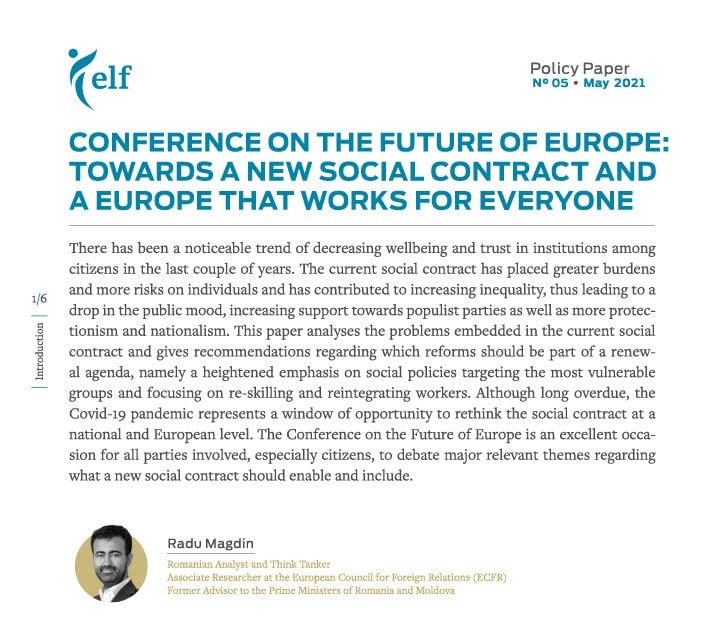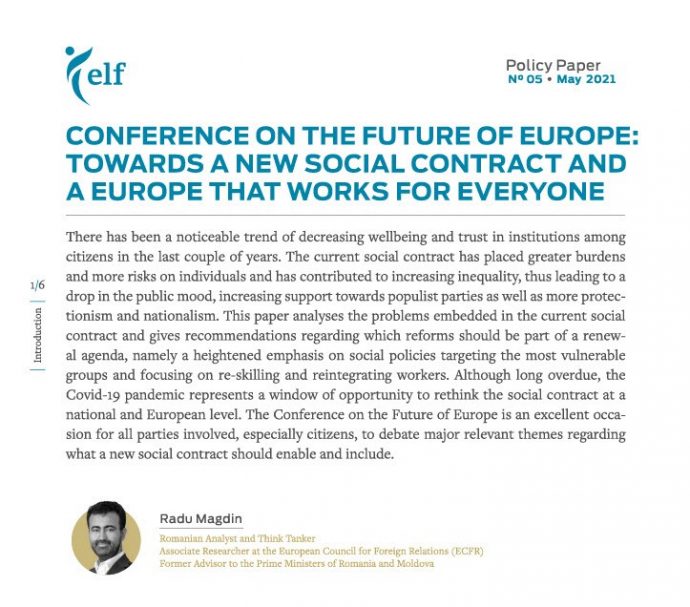Year: 2021
Author: Radu Magdin
ISSN: 2736-5816
DOI: 10.53121/ELFPP5
There has been a noticeable trend of decreasing wellbeing and trust in institutions among citizens in the last couple of years. The current social contract has placed greater burdens and more risks on individuals and has contributed to increasing inequality, thus leading to a drop in the public mood, increasing support towards populist parties as well as more protectionism and nationalism.
This paper analyses the problems embedded in the current social contract and gives recommendations regarding which reforms should be part of a renewal agenda, namely a heightened emphasis on social policies targeting the most vulnerable groups and focusing on re-skilling and reintegrating workers. Although long overdue, the Covid-19 pandemic represents a window of opportunity to rethink the social contract at a national and European level. The Conference on the Future of Europe is an excellent occasion for all parties involved, especially citizens, to debate major relevant themes regarding what a new social contract should enable and include.

